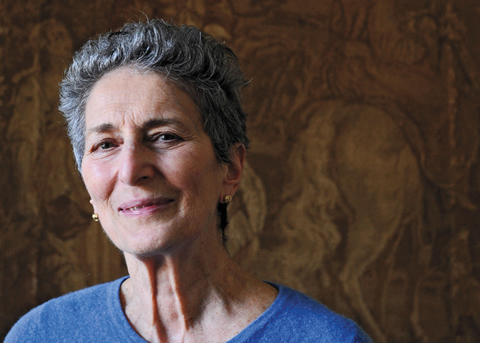The vigorous discussions historian Natalie Zemon Davis recently had with a colleague about her life and craft have been gathered in the new book A Passion for History. The term “passion” is an overused one, but here there is truth in advertising – passion has long infused the professor’s teaching, writing and activism, and helped her win the Holberg International Memorial Prize, worth approximately $780,000, from the Norwegian government for outstanding work in the humanities.
As a graduate student at the University of Michigan, her passion for social justice led her to write a pamphlet protesting the House Un-American Activities Committee’s red hunt. This resulted in her losing her U.S. passport for eight years. Never mind: she spent the 1950s sniffing what she calls the “perfume” of the rare book libraries of North America to ground her academic research into 16th-century France. A junior professor at U of T in the 1960s, the young mother helped lead the successful fight to found a staff daycare, then moved on to professorial posts at Berkeley and Princeton, before returning in the late 1990s to U of T.
A pioneering social historian, Davis focused her published works on individuals who have reached out of the musty documents and grabbed her: on workers and peasants, on women and outsiders, mainly between the 16th and 18th centuries. “I’ve never felt I was the historian for queens and kings…. It’s the others who need me,” says Davis, professor of medieval studies, and adjunct professor of history and anthropology at U of T.
Among those who’ve drawn her passionate interest: a Jewish merchant woman in 17th-century Germany who wrote a bestselling autobiography; a Quebec nun who taught herself Algonquian and Iroquoian in order to aid missionary work; and, most famously, the French peasant who impersonated another, taking his belongings and siring a daughter with his wife. It was with her 1982 book on this cunning imposter, The Return of Martin Guerre, that she made her name – and then was asked to consult on a film dramatization.
The prize acknowledging all this social history is a boon – enabling Davis to donate money to some of those rare book libraries she haunted over the years, among other causes. But she’s not going to let the prize be the capstone of her career. She’s now writing a book on a slave family in colonial Suriname in South America – and was poring over a slave-ship log when we spoke. “Old age is supposed to be the time when one finds a resolution, intellectual and moral,” says Davis, 81. “My old age isn’t like that; it’s full of complications, questions, mystification and uncertainties. The books I read didn’t prepare me for this – but it’s exciting all the same.”
Recent Posts
U of T’s 197th Birthday Quiz
Test your knowledge of all things U of T in honour of the university’s 197th anniversary on March 15!
Are Cold Plunges Good for You?
Research suggests they are, in three ways
Work Has Changed. So Have the Qualities of Good Leadership
Rapid shifts in everything from technology to employee expectations are pressuring leaders to constantly adapt







2 Responses to “ The Social Historian ”
[...] a 2008 interview, the noted historian Natalie Zemon Davis observes that her research process includes reading stories: I always have a novel, biography or [...]
[...] Humanities Medal from US President Barack Obama in a White House ceremony. Read a profile of her here. The Ioan Davies Memorial Lecture commemorates the life and work of Ioan Davies, who explored art [...]